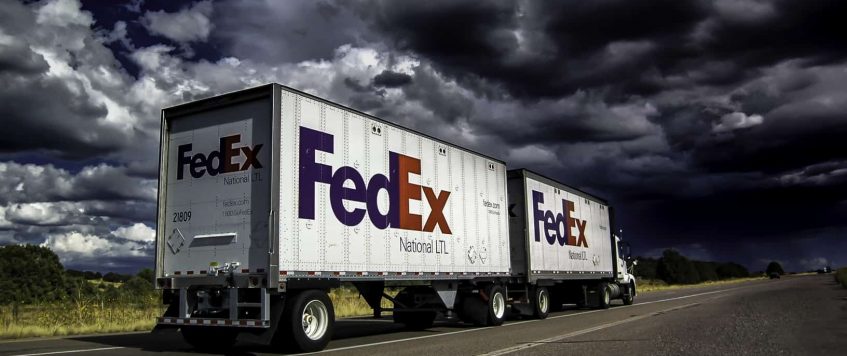-
22
Jun
FedEx Freight reverses service suspensions after outcry from big retailers
FedEx Freight (NYSE: FDX) is walking back its recent abrupt suspension of service to a portion of its customer base after ruffling feathers of key stakeholders that made known their displeasure, according to communications from the company and logistics industry executives.
The measure, aimed at shippers with more costly freight in high-density shipping zones, was intended to provide the nation’s largest less-than-truckload carrier a respite from the enormous wave of shipments pouring into its network, which was slowing deliveries. Caught in the crosscurrent were big-box stores that dictate certain vendors use FedEx Freight and didn’t receive scheduled merchandise.
A FedEx official confirmed Monday evening the carrier has relaxed its initial embargo and is being more precise about which accounts to weed out.
The exact scope of the reversal is still unclear, but a source with deep connections in the trucking industry who is familiar with the situation said it is widespread. The individual asked not to be named to protect delicate business relationships. Meanwhile, Ed Caruso, president of Lakeshore Logistics, a supply chain management company based in Cleveland, said two clients that ship collect via FedEx Freight to Lowe’s (NYSE: LOW) under terms controlled by the retailer were notified that service was being reinstated.
“I have some great news for a Monday morning. I was informed that in Cleveland you can start shipping with FedEx Freight again at 50% of normal volume. This includes shipments to all Lowe’s DCs, with the exception of Lowe’s DC serviced by our Cinnaminson, N.J. service center,” a FedEx sales representative said in a message to one of the companies that was shared with FreightWaves.
Caruso said he verified by phone that FedEx is actually resuming full normal service for those customers, including prepaid freight shipped to other locations besides those of Lowe’s.
FedEx Freight on June 11 essentially gave about 1,400 customers less than one business day’s notice that their shipments wouldn’t be picked up at one or more locations based on the degree of congestion at nearby terminals experiencing the greatest volumes.
“The impact of the [COVID] virus has generated elevated volumes and we continue to experience high demand for capacity and increased operating costs across our network. We want to continue delivering the quality service our customers deserve. FedEx Freight has taken the temporary action to implement targeted volume controls designed to minimize network disruptions and balance our capacity and demand to avoid backlogs across the country – particularly in the most capacity-constrained Freight service centers,” spokesperson Jim Masilak said.
“We are working directly with select customers to address capacity concerns. Instead of implementing a broad action that would impact freight within entire geographic areas, we have taken a much more targeted approach that is designed to help us balance capacity and demand with the least amount of network disruption,” he said.
Bad juju
Analysts and industry officials say LTL carriers are drowning in freight as the economy roars back to life, spurred by manufacturing growth, companies trying to replenish inventories and consumers who have favored purchases of goods over services while following social distancing. E-commerce is booming and spilling into the LTL sector, while maxed-out truckload carriers are unable to act as a relief valve. Consumers are likely to continue merchandise spending even as the service sector reopens because savings and government payouts accumulated during the pandemic give them greater disposable income.
The LTL sector is based on a hub-and-spoke model, while truckload carriers offer door-to-door service. That dependence on an integrated network of terminals, not to mention trucks and drivers, means there is a finite amount of capacity because building necessary infrastructure requires extensive investment and planning.
In today’s frenzied environment, embargoes have become more widespread. Carriers are extremely picky about what new customers or regions of the country they’ll accept new freight from and putting service limitations on existing customers. The selection process, which varies by carrier and circumstance, includes large rate increases and only servicing easy-to-handle freight on high-volume lanes with good two-way shipment flow.

But industry professionals said FedEx’s move was ironfisted and left a bad taste in some mouths.
“Lowe’s was furious,” the anonymous source said. “I know Lowe’s is trying to replace them wherever they can because they cut off suppliers that were key to Lowe’s.” Costco was also impacted, the trucking expert said, because FedEx Freight is its primary carrier.
Lowe’s didn’t respond to a request for information and and Costco (NASDAQ: COST) declined to comment.
Last week, Invacare Corp., an Ohio maker of medical equipment such as powered wheelchairs, said it was disappointed at being dropped by FedEx. The source said Invacare was among the companies put back in the rotation by FedEx.
“Trying to give your customers as much advance notice is the right thing and what we’d look for,” said Adam Blankenship, chief commercial officer of BlueGrace Logistics during an appearance on FreightWavesTV on June 15, adding that the decision to take away capacity speaks to how desperate the situation is for carriers that need to protect service levels.
Regional parcel carriers, such as LaserShip Inc., last year stopped accepting new business to prevent service degradation during peak season for existing customers.
“I think it’s a trend we’re going to keep seeing — not ‘off with their heads’ with 24 hours’ notice, but the aggressive LTL companies are going to be taking a hard look,” concurred Lance Healy, president of Banyan Technology, on Friday’s What The Truck?!?. “Nobody is looking for freight anymore. Now it’s how do I get the right freight from the right customers.”
The trucking insider suggested FedEx Freight’s reversal might be linked to displeasure from the Ground and Express side of the integrated logistics company as much as external pressure.
“I think Freight reacted with this overarching mandate and never considered the impact on parcel. Some of those customers that Freight cut off are also parcel customers, so there was no coordinated messaging and questions about whether parcel service would also be cut off,” he speculated. “Customers were saying, ‘I thought we had a strategic relationship.’”
The FedEx service suspension put many customers in a difficult position of trying to find transportation when transportation providers are fully booked.
But Caruso said it wasn’t as difficult as originally feared.
“We replaced them pretty quickly. We were told ‘no’ by seven of the largest LTLs,” but longtime partners Dayton Freight, Ward Transport & Logistics and YRC Freight (NASDAQ: YELL) figured a way to pick up the extra volume, he said.
LTL carriers are going to have more tools at their disposal in the next couple of years to help them be more choosy about freight and customers, Banyon’s Healy said. His company provides a digital platform that ties into carriers’ systems to provide dynamic pricing for shippers, brokers and logistics providers.
“So Shipper of Choice is actually going to mean something: My average dwell time, how many damage claims do I have, what’s my remittance performance? All those things will be taken into consideration. Because if I’m allocating 15 minutes to be on your dock and I’m stuck there for two hours, you’re just jeopardizing my promise for on-time delivery for all the other customers,” Healy said.
“So that’s going to start playing more and more of a factor. There’s shippers that think they carry a big stick and they have all this leverage. That’s going to change.”

